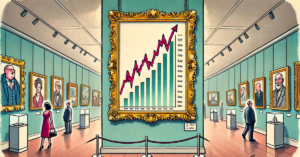Article

As the UK exits recession, we mark the end of one of the shortest and shallowest downturns on record. In the first quarter of the year, the UK’s GDP grew by 0.6%, surpassing the Bank of England’s (BoE) forecast of 0.4%. This surprising resilience has led to a flurry of market activity and a re-evaluation of the UK’s economic outlook.
Sector Performances
A closer look at the various sectors reveals a mixed picture:
- Services Sector: The services sector, a significant contributor to the UK economy, grew by 0.7 per cent. This growth underscores the sector’s adaptability and importance in driving overall economic performance.
- Production Sector: With an increase of 0.8 per cent, the production sector also showed robust growth, reflecting a rebound in industrial activities.
- Construction Sector: In contrast, the construction sector contracted by 0.9 per cent, likely due to adverse weather conditions impacting building activities.
Economic Resilience
The unexpected strength of the recovery suggests that the resilience of the UK economy may have been underestimated. This development prompts a rethinking of future economic forecasts and highlights the potential for more robust growth than previously anticipated.
Optimism and Caution as The UK Exits Recession
While the UK economy is growing at its fastest rate since 2021, matching the pace of the US and Europe, there are reasons to temper this optimism:
- Positive Outlook: ING predicts a 0.5% growth in Q2, reflecting ongoing economic momentum.
- Caution Advised: Despite the upbeat data, significant sectoral fluctuations and lingering effects from the pandemic suggest a cautious approach. The path to long-term growth is likely to be slow and uneven.

Market Reactions
Investor confidence has surged with the end of the recession:
- FTSE 100: The UK’s premier stock index reached new highs following the GDP announcement, signalling investor optimism.
- Growth Upgrades: Analysts like Simon French foresee a more optimistic 1.2% growth for the year and expect the trend to continue.
BoE Policy and Interest Rates
The stronger-than-expected GDP data complicates the BoE’s monetary policy decisions:
- Rate Cuts: While initially anticipated, strong economic performance may delay potential rate cuts.
- Inflation Figures: Upcoming inflation data will be crucial in determining the BoE’s next steps. Current market predictions indicate a 45 per cent chance of a rate cut in June, but expectations for higher interest rates persist.
Political Implications
The political landscape is also reacting to the economic news:
- Chancellor Jeremy Hunt: Celebrated the GDP figures, highlighting them as a positive sign of recovery.
- Opposition Criticism: Shadow Chancellor Rachel Reeves pointed out that despite the growth, the economy remains “£300 smaller per head” than when Rishi Sunak took office, suggesting that the recovery may not significantly influence voter sentiment.
The UK’s exit from recession is a hopeful turning point, signalling the potential for future growth. However, mixed signals from different sectors and the broader economic context necessitate a cautious approach. Investors and policymakers must navigate this complex landscape with optimism tempered by an understanding of the challenges ahead. The journey to sustained, long-term growth will likely be gradual and multifaceted, requiring careful management and strategic planning.






